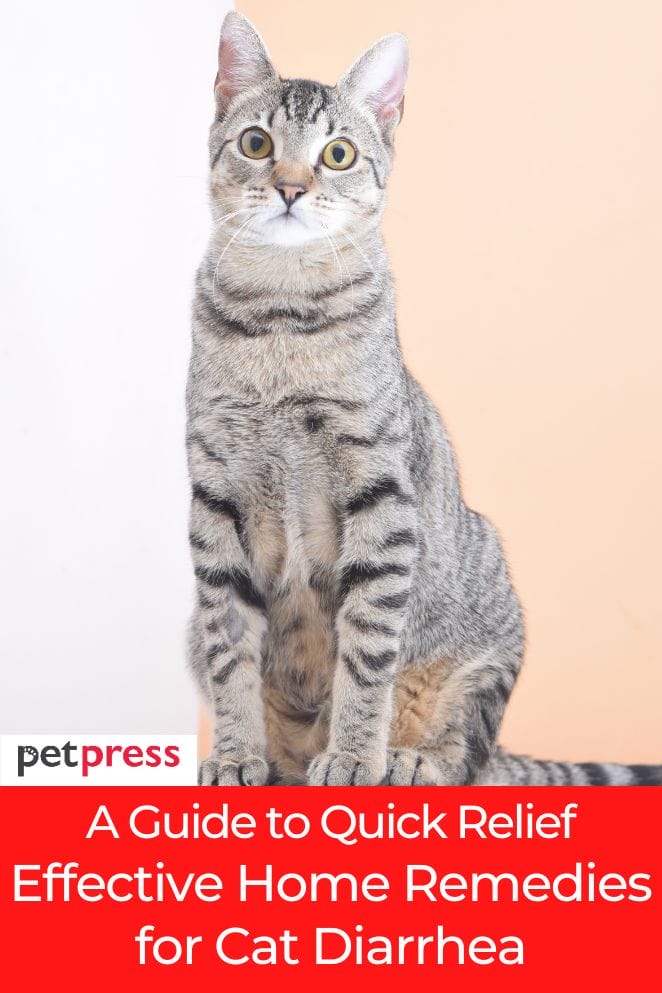
Dealing with cat diarrhea can be distressing for both you and your feline friend.
It’s a common issue that many cat owners face at some point.
While occasional diarrhea can be a minor inconvenience, persistent or severe cases can signal underlying health problems.
This article will explore potential causes of cat diarrhea, effective home remedies, and when it’s time to see a vet.
By understanding these factors, you can help ensure your cat stays healthy and comfortable.
Potential Causes of Cat Diarrhea
Diarrhea in cats can be caused by a variety of factors, and understanding these can help you address the issue more effectively.
Here’s a closer look at potential causes:
Dietary changes
Cats can be sensitive to changes in their diet.
If you switch their food abruptly or introduce new treats, it might upset their digestive system, leading to diarrhea.
It’s best to make dietary changes gradually, mixing old food with new food over several days to help your cat adjust.
Food intolerances or allergies
Just like people, cats can have sensitivities or allergies to certain ingredients in their food.
If a cat is intolerant or allergic to a particular ingredient, it can cause digestive issues, including diarrhea.
Identifying and avoiding these ingredients is key to preventing problems.
Infections
Bacterial, viral, or parasitic infections can disrupt your cat’s digestive system.
Common infections include Giardia, a parasite that can cause watery diarrhea, Salmonella, a type of bacteria that can lead to gastrointestinal upset, and Feline Panleukopenia Virus, which can cause severe diarrhea among other symptoms.
Toxins or foreign substances
Cats sometimes ingest things that aren’t meant to be eaten, such as plants, chemicals, or small objects.
These can irritate their stomach and intestines, leading to diarrhea.
Ensuring that your home is safe from potential toxins and keeping small objects out of reach can help prevent this.
Stress
Cats can be quite sensitive to changes in their environment or routine.
If there are major changes at home, like a new pet, moving to a new house, or changes in the household schedule, it can stress your cat and lead to digestive issues such as diarrhea.
Medical conditions
Some chronic health problems can also cause diarrhea.
Conditions like inflammatory bowel disease (IBD), which causes inflammation in the digestive tract, hyperthyroidism, a condition where the thyroid gland is overactive, and kidney disease, which affects overall health and digestion, can all lead to persistent diarrhea.
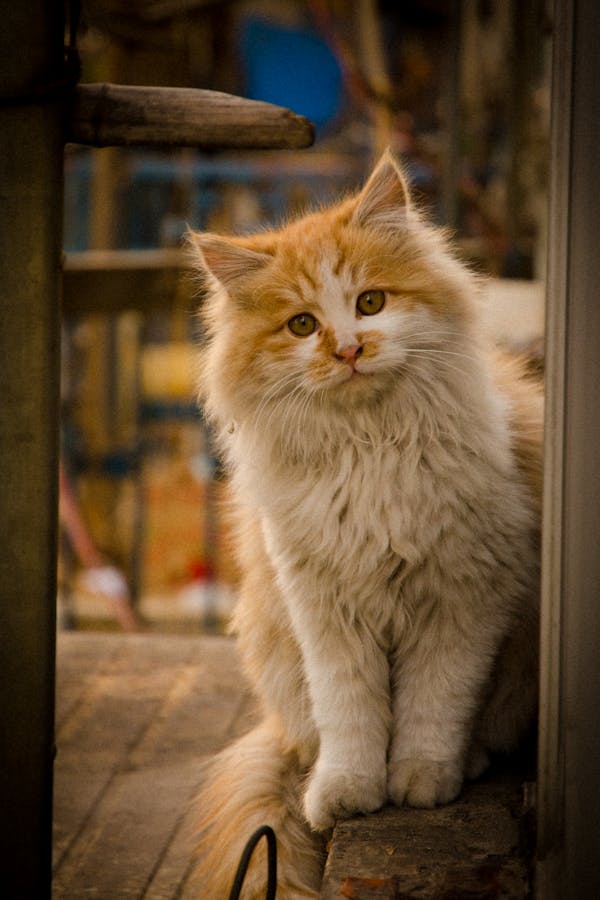
Home Remedies for Cat Diarrhea
Before trying home remedies, ensure your cat’s diarrhea is not severe and that your pet is otherwise healthy.
Persistent, bloody, or accompanied by other symptoms like vomiting and lethargy should prompt a visit to the vet.
Hydration
When your cat has diarrhea, it’s essential to ensure they stay hydrated because diarrhea can quickly lead to dehydration, which can make their condition worse.
- Clean water: Always make sure your cat has access to fresh, clean water. Keeping their water bowl full encourages them to drink more.
- Electrolyte solutions: These solutions help replenish the fluids and minerals your cat loses during diarrhea. However, consult your vet before introducing these solutions.
Dietary adjustments
Changing your cat’s diet can help soothe their digestive system and alleviate diarrhea.
- Bland diet: Feed your cat a bland diet like boiled chicken or turkey (without bones or skin) and plain white rice.
- Small, frequent meals: Instead of giving your cat their usual large meals, try offering smaller portions more frequently.
Fiber
Adding fiber to your cat’s diet can help regulate their bowel movements and improve stool consistency.
- Canned pumpkin: Pure canned pumpkin (not the kind with spices or added sugars) is a good source of fiber.
- Psyllium husk: Psyllium husk is another fiber option that can aid digestion. Consult your veterinarian for the correct dosage and usage.
Probiotics
Probiotics can help restore the balance of good bacteria in your cat’s gut, aiding in digestion and reducing diarrhea.
- Probiotic supplements: Look for feline-specific probiotic supplements and follow the dosage instructions on the package.
- Yogurt: A small amount of plain, unsweetened yogurt with live cultures can be beneficial, but always check with your vet first.
Stress reduction
If stress is the suspected cause of your cat’s diarrhea, take steps to create a calm and stable environment.
- Safe spaces: Provide your cat with quiet, comfortable areas where they can retreat and feel safe. This can help reduce their stress levels.
- Consistent routine: Maintain a consistent daily routine for feeding, playtime, and litter box cleaning.
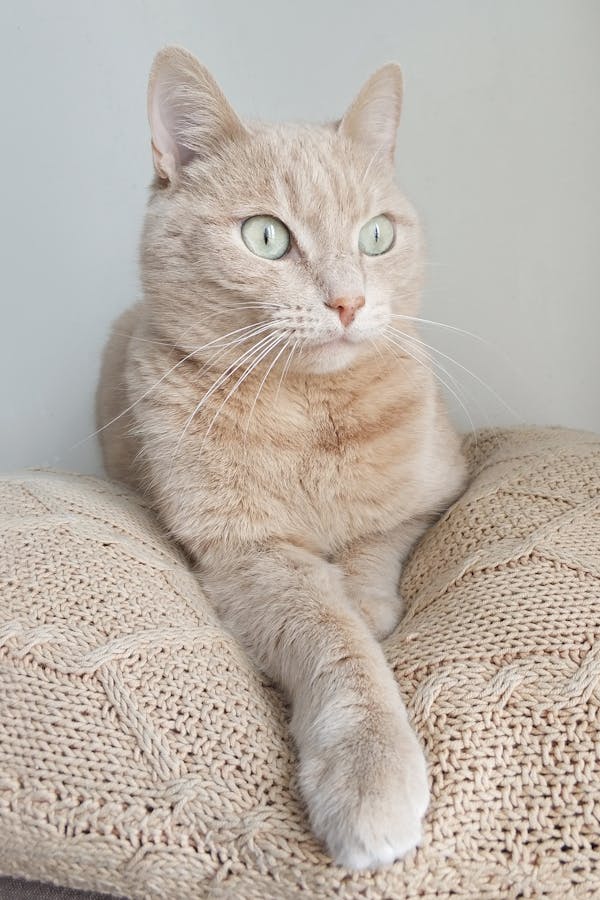
When to See a Vet
When managing your cat’s diarrhea, home remedies can be helpful for mild cases, but there are certain situations where you should definitely seek veterinary care:
Persistent diarrhea
If your cat’s diarrhea continues for more than 48 hours, it’s important to consult your veterinarian.
Persistent diarrhea can indicate a more serious issue that needs professional evaluation.
Severe symptoms
If your cat shows severe symptoms such as bloody diarrhea, vomiting, lethargy, or signs of dehydration (like dry gums or sunken eyes), seek immediate veterinary care.
These symptoms can signal a serious condition that requires prompt treatment.
Underlying conditions
If your cat has any pre-existing medical conditions, such as kidney disease or inflammatory bowel disease, it’s crucial to consult your vet before trying home remedies.
These conditions can complicate treatment and require specialized care.
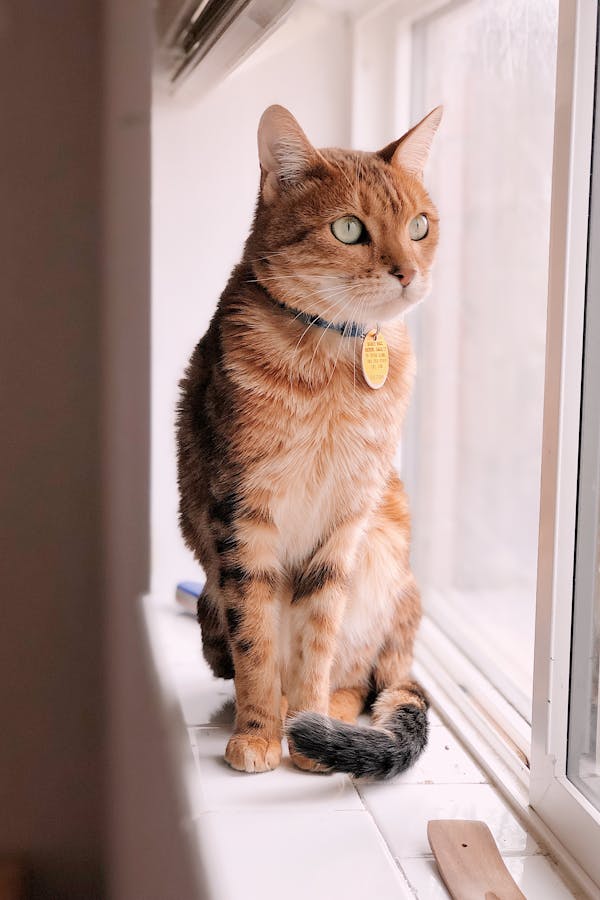
How Can I Prevent My Cat from Getting Diarrhea?
Preventing diarrhea in cats involves a few key practices to ensure their digestive system stays healthy and stable.
Here’s how you can help keep your cat from getting diarrhea:
Gradual dietary changes
When you need to switch your cat’s food, do it gradually.
Over the course of about a week, mix a small amount of the new food with the old food, slowly increasing the new food’s portion.
This gradual change helps prevent upsetting your cat’s digestive system.
Avoid table scraps
Human foods can be harmful to cats and often lead to digestive problems, including diarrhea.
Stick to cat food and treats specifically designed for feline nutrition, and avoid giving your cat table scraps.
Regular vet check-ups
Regular visits to the veterinarian help catch and address health issues before they become serious.
Your vet can monitor your cat’s overall health and make sure there are no underlying issues that could lead to diarrhea.
Parasite prevention
Parasites like worms or Giardia can cause diarrhea in cats.
Keep your cat on a regular parasite prevention schedule as recommended by your vet.
This might include medications or treatments to keep parasites at bay.
Stress management
Stress can also lead to diarrhea in cats.
Create a calm and stable environment for your cat.
Consistent routines for feeding, playtime, and litter box maintenance, as well as providing quiet spaces for your cat to retreat to, can help minimize stress.
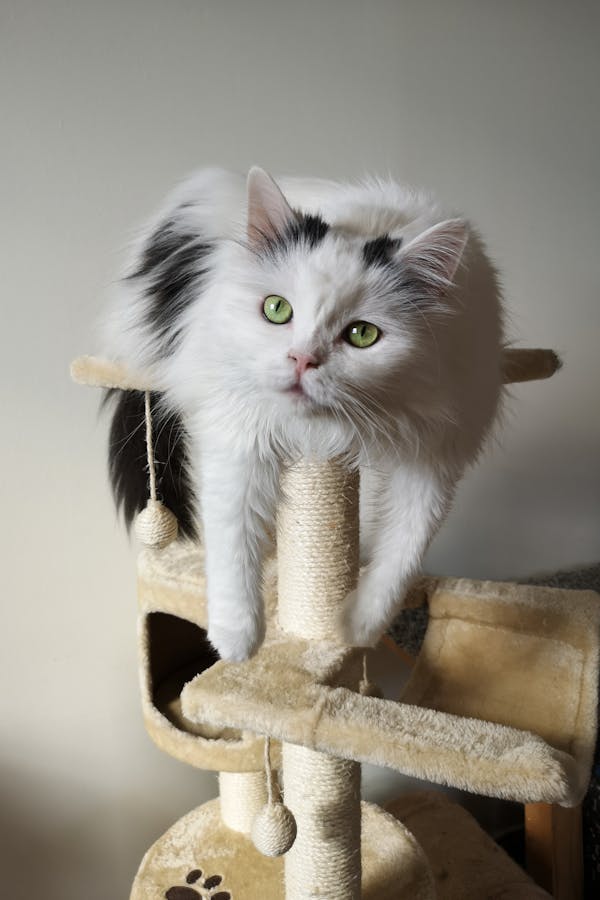
Conclusion
Cat diarrhea can be concerning, but with the right approach, you can manage it effectively at home.
Ensure your cat stays hydrated, consider dietary adjustments, and try adding fiber and probiotics to their diet.
Reduce stress in their environment, and always be mindful of when to seek veterinary care.
By following these guidelines, you can help your cat recover quickly and prevent future episodes of diarrhea.
- Does Cat Litter Melt Ice? The Complete Guide to Winter Safety - January 30, 2026
- Happy Tail Dogs: Understanding This Common Canine Condition - January 29, 2026
- How Cold Can Outdoor Cats Handle? Feline Winter Safety - January 27, 2026


GIPHY App Key not set. Please check settings